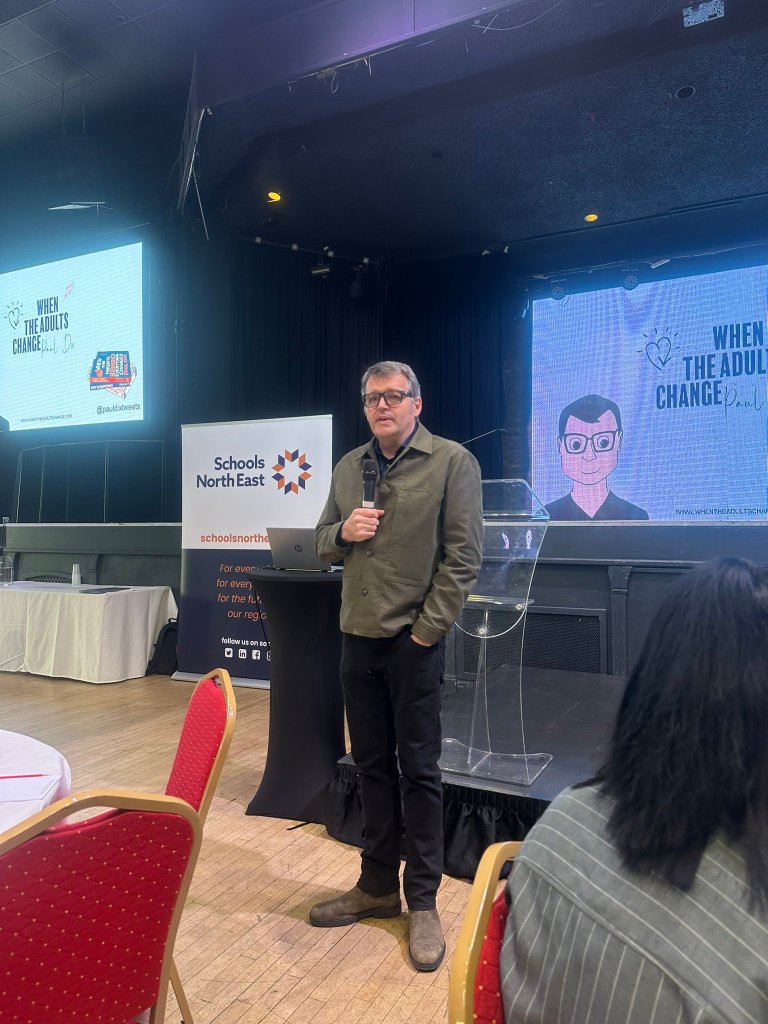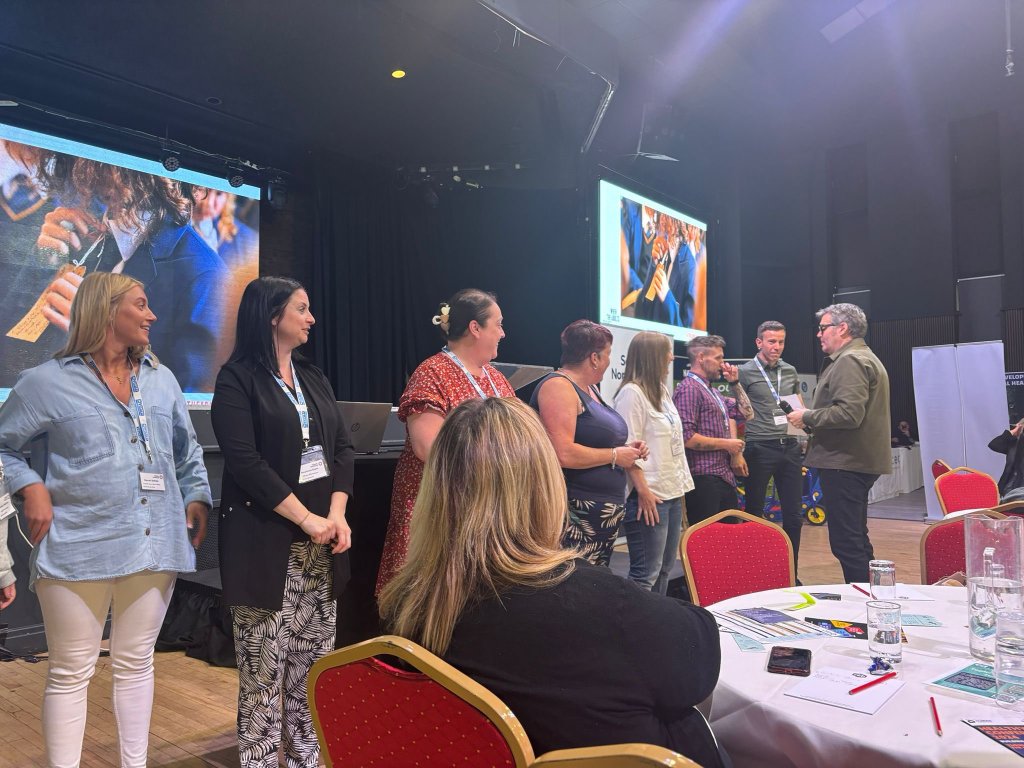On Tuesday (21 May), we had the pleasure of hosting our eighth Healthy MindED Conference, and we can say under no uncertain terms… that 2024 really has been the best year so far!
Not only did we hear from some truly remarkable experts and leaders, but it was also an incredibly timely conference; the topic of children and young people’s mental health and wellbeing is one that’s been dominating the sector recently.
In February, it was reported that the number of children referred to emergency mental healthcare in England has soared by more than 50 percent in three years, according to data that highlights the impact of lengthy waiting lists for regular NHS treatment.
Healthy MindED Conference 2024 could not have come at a better time, and we’re so pleased with the efforts made by attendees, sponsors, and of course, speakers. It was a beautiful day that equipped delegates with fresh insight and clever tools to help them BUILD A CULTURE OF RESILIENCE IN SCHOOLS!
Keynote speaker: Loti Nambombe

Once all attendees had arrived and settled in, Loti Nambombe took to the stage as our first keynote speaker, and what an inspiring, interactive, and knowledgeable session it was. A great way to start the day.
Loti, who is a School & Keynote Speaker, Charity Trustee, School Councillor & Presenter from Make Life Kind, spoke about the importance of online safety for our children and young people, highlighting some shocking – and downright terrifying – statistics.
For example, the audience were asked “how many games, apps, and websites are used to groom children and young people online?” Delegates called out various answers, from 33 to 59 to 99. The real answer? 150.

One hundred and fifty games, apps, and websites are used to groom children and young people – every single day. If there’s a contact option online, grooming is possible. Scary.
Loti went on to explore strategies that teachers can implement to increase pupil safety, including encouraging open communication and using privacy settings.
Overall, Loti’s session delivered on the promise to help educators and leaders navigate online safety, online grooming and bullying through the power of real-life stories, statistics, and practical guidance.
Keynote speaker: Paul Dix

After lunch, we were joined by the one and only Paul Dix, behaviour specialist, author, education reformer, and advisor.
Paul is no stranger to helping teachers and head teachers across the world with transformational relational behaviour practice, and it’s safe to say that he can now add the Schools North East Healthy MindED Conference 2024 to his list of successes.
The session started with a heartwarming true story about one of his old pupils and the power of positive notes, which set the tone perfectly for Paul’s insightful and delightful two hour and forty minute session.
He talked us through the difference between ‘relational practice’ (predictable, systematic, consistent, habitual) and ‘good relationships’ (intuitive, sentimental, variable, and emotional).
“You get more of the behaviour you notice most,” Paul announced, and you could practically hear the penny drop in the main room! If we begin to chase, notice, and praise the good behaviour in schools, we’ll start to see more of that good behaviour.

“Positively noticing = emotional currency = trust” Paul continued, insisting that educators must never underestimate the power of “positive noticing”, or how that “noticing” is carried out. Contrary to popular belief, gifts and money aren’t key drivers in this situation.
When 1,000 children were asked what they really wanted in response to good behaviour, the top three answers were:
3. Praise
2. Postcard home / positive note
1. Phone call home
Yes, it really can be that simple! Paul reassured educators that they don’t need complicated, expensive reward and point systems. In fact, he highlighted that these systems can be confusing for educators themselves, and when different teachers have different standards for giving out rewards, this confusion extends to the children.
Paul’s presentation was inspiring, seamlessly blending expert insights with engaging storytelling – and even a few props along the way (our favourite being the rabbit’s hat)!
Paul captivated the audience with his depth of knowledge and left many of us with a renewed sense of purpose and motivation. In response to his session, one attendee said: “WOW! Inspiring, interesting and really knowledgeable speaker, gave great insight and great advice/hints/tips to support change within colleagues in our setting. Absolutely brilliant.”
Another delegate said: “Inspiring. Plenty of food for thought whilst also being tangibly rooted in the practicalities of implementation.”
Brilliant breakout sessions

Sandwiched between our incredible keynote speakers were nine brilliant, carefully crafted breakout sessions!
In session round one, we gained valuable insight from Helen Spiers (Mable Therapy) on how supporting mental health can improve emotionally-based school avoidance; Julie Gibson and Fiona Riddle (Autism Education Trust) taught attendees on how to develop inclusive culture and good autism practice in schools, and Kay Harrop (Evergreen Primary School) used an interesting case study to explore how musical theatre can measure pupil wellbeing and build resilience.
In session round two, Jude Gordon (Relate) took a deep dive into the impact of parental relationship distress and conflict on children; Claire Briston (Newcastle Carers) uncovered how we can improve recognition, build strength and resilience, and take action to help carers, and Robert Bell (Consilium Evolve) shared expert insight on how understanding visual and auditory processing can make a ‘life changing’ impact on pupils.
And last but not least, in session round three, Shaheen Myers (Balance:ed) revealed key ways to help leaders and staff find balance between work and wellbeing; Dr Helen Tamworth, Rebecca Lowes, and Emma Honeywell (Be You Northumberland) explored the topic of ‘Developing Resilience: A Whole School Approach’, and Peter Hubbard (Outdoor Educator, Exploring Etc) explained the link between nature and wellbeing, and how these pathways can be exploited in a school context.
An amazing day full of networking, learning, and growing

Overall, it really was a tremendous day, and we’re delighted that we were able to provide the space and tools to help North East educators improve student mental health and build resilience in their schools.
Thanks to all attendees, whose continuous engagement and enthusiasm drive our mission forward, and to our speakers, whose insights and expertise have illuminated the path towards a more supportive – and successful! – educational environment.
And finally, a huge thank you to all exhibitors and sponsors, including main event sponsor Mable Therapy. Together, we’re fostering a brighter, healthier future for our region’s young people, and for that we should be immensely proud!
We love to hear good news from North East Schools, to share your news with Schools North East please tag @SchoolsNE on Twitter or fill in this short form.

